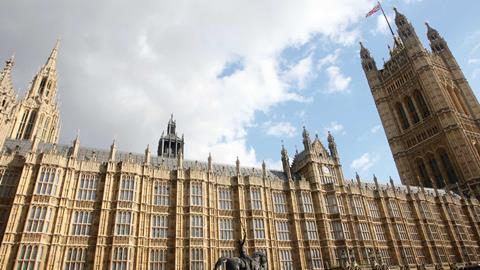MPs will soon have their first opportunity to debate the government’s controversial judicial review reforms. The Judicial Review and Courts Bill has its second reading in the House of Commons on Monday.
The bill, announced in the Queen's speech earlier this year, addresses two areas of concern for the government.
The first is the flexibility of the remedies that the court is able to give. The legislation will allow courts to suspend the effects of a quashing order, meaning judges can delay the point at which a government action is overturned. The Ministry of Justice says this will improve public policy by, for example, allowing a department to consult on the best way to replace an administrative regime, rather than rushing to do it immediately.
The court will also be able to limit the retrospective effect of quashing orders, meaning judges can determine the government’s action unlawful without invalidating any prior action. The government says this will enhance good administration, with public resources spent making a regulatory regime work rather than focusing on retrospective compliance.
The second area of concern is the efficiency and structure of the courts system, which the government says is undermined by a particular route of judicial review. The bill will reverse the effect of the Supreme Court’s 2011 judgment in Cart, which would prevent Upper Tribunal appeals being subject to judicial review.
The bill has not been without controversy. Whitehall departments, including 10 Downing Street, refused to disclose their full submissions to the Independent Review of Administrative Law. The government's consultation on proposals in response to the Faulks review was open for only six weeks. Public law specialists disputed the data used to justify reversing Cart. The bill was announced in the Queen's speech in May. The government published its consultation response in July, on the same day the bill was introduced to parliament.
It remains to be seen whether lord chancellor Dominic Raab - who plans to 'overhaul' the Human Rights Act - will take the same approach to judicial review as his predecessor Robert Buckland, who believed in ‘incremental change’.
Raab told the Conservative party conference last week: ‘There is a wider piece around judicial review. We need to look at that in a smart way. We need to carry people with us, lawyers and the judiciary. The case for reform is also powerful.’
- The second reading was today postponed in order for the house to pay tribute to Sir David Amess, the Conservative member for Southend West, who was murdered in his constituency on Friday.




























8 Readers' comments